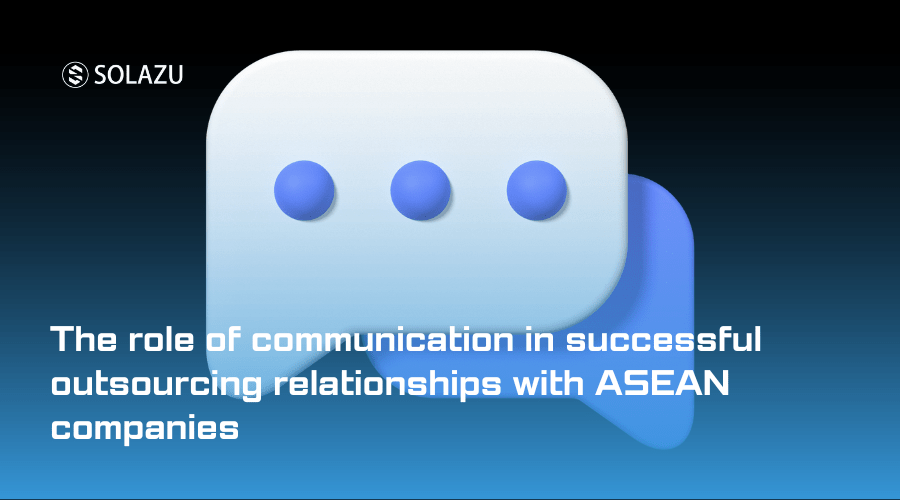In today’s globalized economy, outsourcing has become an essential business strategy for companies looking to cut costs, improve efficiency, and access a larger talent pool. The ASEAN region, comprising of ten countries in Southeast Asia, has emerged as a top destination for outsourcing software development services. However, to ensure successful outsourcing partnerships with ASEAN companies, effective communication is critical.
Effective communication is the key to building and maintaining strong relationships with offshore teams. It helps to establish trust, clarify expectations, and ensure that all parties are aligned towards a common goal. Communication barriers can cause misunderstandings, delays, and even project failures. Therefore, it is essential to implement strategies to overcome these barriers and ensure that communication flows smoothly between the client and the outsourcing partner.
One of the primary communication barriers when outsourcing to ASEAN companies is the difference in language and culture. While English is widely spoken and understood in the region, there are still significant differences in the use of language, tone, and communication styles. Cultural differences can also affect communication, including work ethic, hierarchy, and the approach to problem-solving.
To overcome these challenges, it is essential to establish clear communication channels and protocols from the outset. This includes regular virtual meetings, email communication, and instant messaging tools like Slack or Microsoft Teams. Communication should be frequent and transparent, with both parties providing regular updates on project status and any challenges or concerns.
It is also important to consider the impact of time zones on communication. When working with offshore teams, there may be significant time differences between the client and the outsourcing partner. To overcome this challenge, it is essential to establish a schedule that works for both parties. This may involve adjusting work hours or setting specific times for virtual meetings.
Another critical aspect of communication in outsourcing partnerships is ensuring that both parties have a clear understanding of project requirements and expectations. This involves defining project scope, timelines, and deliverables in detail. It is also important to establish clear metrics for measuring progress and success.
Regular feedback and performance reviews are also essential for building strong outsourcing relationships. This includes both formal reviews at specific project milestones and informal feedback on a day-to-day basis. Regular feedback helps to identify and resolve issues quickly, ensure that everyone is aligned towards the project’s objectives, and foster a culture of continuous improvement.
Finally, it is essential to establish a culture of openness and transparency in outsourcing partnerships. This includes encouraging open communication, addressing concerns and issues quickly, and being honest and transparent about project progress and challenges. Building trust and mutual respect is essential for building long-term outsourcing partnerships that deliver results.
In conclusion, effective communication is essential for building and maintaining successful outsourcing partnerships with ASEAN companies. It helps to overcome cultural and linguistic barriers, establish clear expectations, and ensure that both parties are aligned towards a common goal. By implementing effective communication strategies, companies can build strong outsourcing partnerships that deliver value and drive business success.
